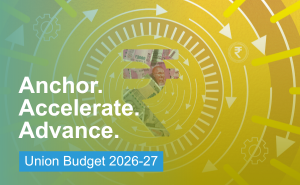
Export benefit such as SEZ, EPCG, MEIS, etc. held to be non-compliant of WTO norms

A World Trade Organization (WTO) panel in its report has ruled that the export promotion schemes viz. Merchandise Export from India Scheme (MEIS), Duty Free Import Scheme (DFIS), Export Oriented Units (EOUs), Electronic Hardware Technology Park (EHTP), Bio-Technology Park (BTP), Special Economic Zone (SEZ), etc. are inconsistent with the agreement on Subsidies and Countervailing Measures (SCM), and accordingly should be withdrawn.
The key schemes considered by the WTO panel and its decision thereon are as follows:
| Sr. no. | Scheme and export benefit therein | Conclusion of the WTO panel | Scheme to be withdrawn within |
|---|---|---|---|
| 1. | Exemption from Customs duties under EOU, EHTP, BTP and EPCG schemes | Inconsistent with the SCM agreement | 120 days of the adoption of report |
| 2. | Exemption from Customs duties and IGST, and deductions from taxable income under the SEZ scheme | Inconsistent with the SCM agreement | 180 days of the adoption of report |
| 3. | Exemptions from Customs duties under conditions 10, 21, 36, 60(ii), 61 of DFIS |
Inconsistent with the SCM agreement | 90 days of the adoption of report |
| 4. | Duty Credit Scrips under MEIS |
Inconsistent with the SCM agreement | 120 days of the adoption of report |
| 5. | Exemptions from Central excise duty on domestically procured goods under EOU, EHTP and BTP schemes | Consistent with the SCM agreement | NA |
| 6. | Exemption from Customs duties under conditions 28, 32, 33, 101 of DFIS | Consistent with the SCM agreement | NA |
Government invites suggestion for RoDTEP scheme
Recently, the government had announced its plans to launch the Remission of Duties or Taxes on Export Products (RoDTEP) scheme to replace the existing MEIS and other export promotion schemes.
Now, in order to determine the burden of embedded taxes and formulate incentive rates under the proposed scheme, the Ministry of Commerce and Industry is inviting product-wise data/information from manufacturing units/exporters. Product-wise data should be provided in a format set by the government:
- Details of the exported product;
- Details of common embedded taxes such as transportation, electricity, etc.;
- Details of embedded taxes on raw materials/inputs.
Clarification on ITC restriction introduced under GST
On October 9 2019, the government had inserted Rule 36(4) to the CGST Rules, 2017 whereby, Input Tax Credit (ITC) with respect to invoices or debit notes, the details of which have not been uploaded by the supplier, is restricted to 20% of the ITC with respect to invoices or debit notes uploaded by the supplier i.e. appearing in GSTR-2A.
In this regard, the government vide Circular No. 123/42/2019-GST dated 11 November 2019 has provided the following clarifications:
- The restriction should be applicable only to invoices/debit notes on which ITC is availed after 9 October 2019.
- The restriction is imposed on the consolidated ITC, and not supplier-wise ITC.
- The calculation would be based on only those invoices which are otherwise eligible for ITC. Accordingly, those invoices on which ITC is not available, like, blocked credits under Section 17(5), would not be considered for calculating 20% of the eligible credit available.
- Taxpayer can avail ITC in respect of invoices/debit notes uploaded by the supplier only up to the due date of filing of GSTR-1 (i.e. taxpayers should download GSTR-2A on the 11th of every month to determine the amount of eligible ITC available for that month.)
- Taxpayers may avail full ITC in respect of a tax period, as and when the invoices are uploaded by the suppliers to the extent of ‘Eligible ITC divided by 1.2.’
- Below is an illustration of ITC in respect of invoices pertaining to the month of November 2019:
| Particulars | Month in which eligible ITC is being computed | |
|---|---|---|
| December 2019 | January 2020 | |
| Total ITC as per books | 10,00,000 | 10,00,000 |
| ITC of invoices appearing in GSTR-2A | 6,00,000 | Say, 10,00,000/1.2 =8,33,333 |
| ITC of invoices not appearing in GSTR-2A | 4,00,000 |
1,66,667 |
| Eligible ITC to be claimed | 6,00,000 + 20% of 6,00,000 =7,20,000 |
8,33,000 + 20% of 8,33,333 =10,00,000 |
As per the above, a taxpayer can claim the entire ITC of INR 1 million for invoices for the month of November 2019 once invoices to the extent of INR 0.83 million appear in GSTR-2A.
Communications from the GST department to contain DIN
The government vide Circular No. 122/41/2019-GST dated 5 November 2019 has directed that search authorizations, summons, arrest memos, inspection notices and letters issued in course of any inquiry by any officer should contain a computer-generated Document Identification Number (DIN). This should be applicable to documents issued on or after 8 November 2019.
Any communication not bearing the DIN and not covered under certain exceptions should be considered invalid and deemed to have never been issued. The recipient of the communication can ascertain the genuineness of the DIN by using the facility available on https://www.cbicddm.gov.in/MIS/Home/DINSearch
Recent Insights
- SA 260 Revisited: Strengthening Communication Between Auditors and Those Charged with Governance
- Segment Reporting as a Focus Area for Regulators
- Ethical Considerations in Using External Experts in Assurance and Related Services Engagement
- Budget 2026 – A Structural Reset of Safe Harbour Provisions and Fast Track APA for IT Services
- RBI Notifies Consolidated FEMA Regulations On Export And Import Of Goods And Services
SUBSCRIBE TO OUR INSIGHTS
We are constantly working on sharing relevant alerts & publications to keep you informed on the latest developments.



Our Comments